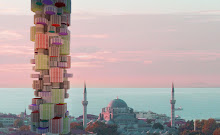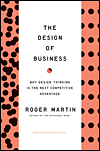The well publicized Emirates - Dubai and Abu Dhabi often get much attention for their over the top, garish architectural developments. European and American architects are given a carte blanche to push the limits of engineering, design and good taste. And while the gold hotel, revolving skyscrapers, explosion of museums and islands gets more of the media attention, there are other culturally driven developments simultaneously occurring within U.A.E. that I find very promising and make me feel somewhat optimistic about the "Arab Renaissance" that various pundits have claimed is being born out of the Arabian Gulf states. These more subtle developments - such as the promotion of local Arab films and art scene, I feel will transform the Abu Dhabi and especially Dubai for the better and eventually help to foster more complex, organic growth in these cities.
With limited political freedoms, many artists in the Arab world have often found it tough to not only create art, but to fund it and exhibit it. The Gulf Art Fair is changing that. Smaller galleries such as XVA (opened by a Canadian expat) are popping up around Dubai giving new talent and creativity a platform. Emirati artists are slowly gaining international fame and recognition.
Then today in the LA Times, I read "U.A.E. is stepping up efforts to make Western books available to its citizens." The Abu Dhabi Authority for Culture and Heritage (Adach) has chosen 100 books to be translated into Arabic in an effort to promote knowledge and culture within the Arab state. The books selected this year include Alan Greenspan's memoir; Milton Friedman's Capitalism and Freedom; Lawrence Wright's Pulitzer Prize-winning book on the origins of al-Qaeda, The Looming Tower; and Khaled Hosseini's Kite Runner. A number of Jewish writers have also been included on the list. The goal is ultimately to translate a 100 books every year.
Why is this a big deal, you may wonder?
To answer this question, I reference the 'Arab Human Development' report published by the U.N. Development Programme in 2002. According to this report, Arab societies are paralyzed because of an absence of political freedoms, the persecution of women, and isolation from the world and new ideas. The report also found that the total number of books translated into Arabic yearly is around 300 (which is 1/5 of the number translated in a small country like Greece). More shockingly, the report cited that the number of books translated into Arabic during the last 1000 years since the rule of Caliph Al-Ma'moun (a 9th century Arab ruler who promoted cultural interaction between Arab, Persian and Greek scholars) is less than than the number of books translated in Spain in a year!!! So while 100 books may not seem like a dramatic addition to most people, in the Arab world this is a huge contribution and a very hopeful and engaging shift.


1.04.2008
Freedom to Read and Create - U.A.E. Slowly Changing the Dynamic in the Arab World
Subscribe to:
Post Comments (Atom)





























No comments:
Post a Comment